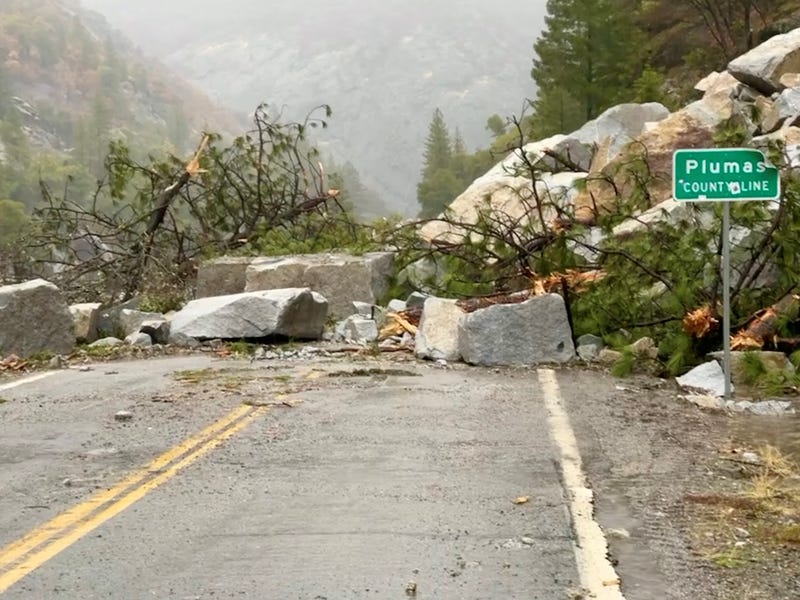
Although the rainstorm petered out in the Bay Area on Monday morning after a record rainfall over the weekend, some parts of Northern California are cleaning up the mess of the extreme weather.
After a brutal summer of wildfires ravaging forests and polluting the air with smoke, the northern Sierra Nevada and the Lake Tahoe area are being inundated with precipitation from Sunday continuing into Tuesday.

The areas burned in the fires are especially vulnerable to this weather, as ground covered in burn scars from the Dixie and Caldor fires become overwhelmed by precipitation. The loose and damaged ground is ripe for land shifting and debris slides.
Flash flood and debris flow warnings were issued for those areas.
"Heavy rain is starting to move in and this will cause debris flows within the Dixie Fire," the weather service's Sacramento office tweeted early Sunday morning. The warning ended Monday morning at 3 a.m. The Caldor Fire flood warning was extended to 9 a.m. Monday morning.
According to the service, "debris flows occur over recently burned areas where there is no longer vegetation to absorb water and keep soil in its place. A fast moving mix of mud, ash, and debris can form and move down slope," and the flow can fall quickly, as fast as a moving car.
The National Weather Service also issued a winter storm warning Sunday, which went into effect at 11 p.m. and will continue through Monday night for travel above 6,000 feet in the Sierra Mountains. The service advised people to avoid traveling through the mountains, if possible, as there are "slippery roads and reduced visibility."
Hazardous driving conditions in Donner Lake has led Caltrans' District 3 branch to restrict travel to passenger vehicles only on I-80 westbound from the Nevada state line to Nyack. Commercial vehicles, such as semi trucks, are prohibited for now. Chains are required on accepted vehicles.
While I-80 is open for the time being, Highway 50 over Echo Summit is closed from Fred's Place to Meyers after a torrent of boulders fell around 11 p.m. last night, blocking the road. According to Caltrans, crews are working to clear the road. Estimated time of reopening is 11 a.m.
The effects of the atmospheric river aren't going away in the region for the time being, according to the National Weather Service Sacramento office.
As of 8:30 a.m. Monday, rain and snow are still falling rampantly throughout the area. "Hazardous travel continues over Sierra mountain passes," the service tweeted.

